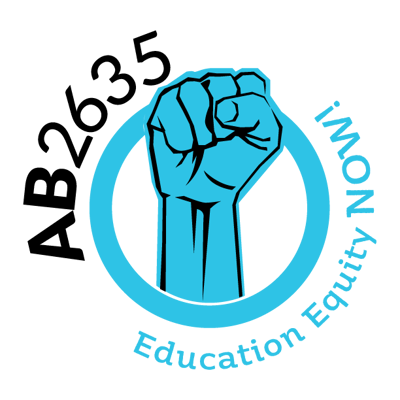
Take Action Today!
Ask your legislators to increase public education funding and support for African American students by VOTING YES on AB 2635.
About AB 2635
AB 2635 will fix a fundamental flaw in the Local Control Funding Formula (LCFF) by creating a new supplemental grant for California’s lowest performing subgroup of students not currently receiving funding, which are African American students. AB 2635 is sponsored by the California Charter Schools Association (CCSA) and authored by Assemblymembers Shirley Weber (D-San Diego), Autumn Burke (D-Inglewood), and Mike Gipson (D-Carson).
Statewide 2017 testing data shows that African American students are the lowest performing subgroup of students, outside of students with disabilities, with only 31 percent meeting English Language Arts (ELA) standards and only 19 percent meeting Math Standards. The statewide average for all students was 49 percent meeting ELA and 38 percent meeting Math standards.
Despite this inequity, African American students do not receive supplemental funding under the LCFF.
These students need equitable funding now!
AB 2635...
Promotes academic growth
AB 2635...
Supports African American students for college and career-readiness
AB 2635...
Drives equitable education funding for African American students
AB 2635 is currently supported by:
California Charter Schools Association (Sponsor)
Academica California
Black American Political Association of California, Sacramento Chapter
Black Parallel School Board
California Association of African American Superintendents & Administrators
California Association of Black School Educators
California Black Chamber of Commerce
California School Boards Association
California County Boards of Education
California NAACP
California Policy Solutions
Children Now
Education Trust-West
EdVoice
Greater Sacramento Urban League
Green Technical Education and Employment
ICEF Public Schools
KIPP LA Public Schools
Los Angeles Urban League
Los Angeles County Office of Education
Magnolia Science Academy 3
National Coalition of 100 Black Women, Sacramento Chapter
New West Charter
Oakland Unified School District
Resolute Academy
Sacramento Black Chamber of Commerce
United Negro College Fund
Vox Collegiate
Wilder's Preparatory Academy Charter School
Frequently Asked Questions
Everything you need to know about LCFF and how AB 2635 can help serve African American students across the state of California.
What is the Local Control Funding Formula?
The Local Control Funding Formula (LCFF) was enacted in 2013 and was a complete restructure of education funding in California. With the Local Control Funding Formula, three of California’s highest needs student populations receive supplemental funding for additional support: English Language Learners, Low-income students, and Foster or Homeless Youth. All of California’s public schools are held to higher levels of accountability to improve the academic performance of these subgroups. Despite chronic underperformance, African American students are not identified as a high needs population for funding.
How much additional funding would this result in?
We estimate that approximately 90,000 additional African American students would generate additional funding. These are African American students who are not currently already receiving an LCFF supplement through being low-income, English Language Learners, or foster/homeless youth. This proposal would generate approximately $388 million in additional supplemental grant funds to support students in the lowest performing subgroup not already receiving and LCFF supplement.
How is the lowest performing subgroup identified in this proposal?
The Superintendent of Public Instruction would be required to annually identify the lowest performing subgroup statewide. Currently this subgroup is African American students. This excludes subgroups that already generate supplemental funding: English Language Learners, low-income students, and homeless/foster youth. This also excludes Special Education students since they are specifically funded.
What if the lowest performing subgroup changes?
If the current lowest performing subgroup increases its performance above the next lowest performing subgroup, that subgroup would generate additional supplemental funding. The original subgroup would continue to be grandfathered into the formula and would continue to receive supplemental funds until it meets or exceeds the highest performing subgroup in the state.



